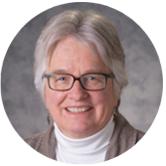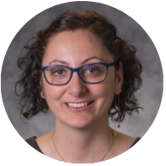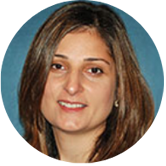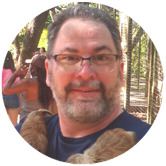April Expert Panel: Integrating Engineering into Middle School Curriculum: Challenges, Strategies and Impact
Overview Blog Playlist Expert Panel Discussion Resources Synthesis Brief
Download: Webinar Chat and Resources Mentioned During Webinar
Date Recorded: April 13, 2022 at 4:00 PM ET
Description: This month's theme addresses how engineering can be integrated into the STEM classroom and provides the perspectives of curriculum developers, researchers and teachers. Curriculum developers and researchers have created engaging instructional materials to integrate engineering across STEM, but what challenges have teachers encountered when implementing these in their schools? What strategies have they employed to make it successful? How can we measure the impact on students? The webinar, video playlist, and resources will provide a broad lens to innovative engineering programs, particularly at the middle school level.
MODERATOR AND PANELIST BIOS
Moderator:
Marion Usselman is a Principal Research Scientist and Associate Director for Educational Innovation and Development at Georgia Tech’s Center for Education Integrating Science, Mathematics and Computing (CEISMC). Her research interests are in the development, implementation and assessment of curricular innovations that promote engagement of all students in STEM fields. See Marion's Video >>
Panelists:
Dr. Meltem Alemdar is Associate Director and Principal Research Scientist at Georgia Institute of Technology’s Center for Education Integrating Science, Mathematics and Computing. Her research focuses on improving K-12 STEM education through research on curriculum development, teacher education, and student learning in integrated STEM environments. Her NSF-funded research projects have focused on project-based learning, STEM integration, engineering education, and social network analysis. Dr. Alemdar has also served as an external evaluator for various NSF projects.
Nidaa Makki is a Professor and Director of the Urban STEM Education Center in the LeBron James Family Foundation School of Education at the University of Akron. Her research focuses on implementing engineering education and science inquiry in the classroom. She has served as co-PI on NSF ITEST and IUSE projects, as program evaluator for various STEM programs, and has led teacher professional development in Physics Modeling, Engineering Education, and Problem Based Learning. She continues to collaborate with teachers to develop, implement, and evaluate programs that support student engagement with authentic science and engineering experiences.
Chelsea Nicolinois an eighth-grade integrated science teacher in Akron, Ohio. She has a passion for embedding mastery learning and STEM education into her classroom. Chelsea is an Ambassador and guest blogger for the Teach Better Team and has been featured on several educator podcasts. She also enjoys creating engaging inquiry-based lessons for her students to foster their love of science. In her free time, Chelsea loves connecting with other educators on social media, listening to podcasts, reading a good book, and spending time with her husband and two young children.
Isabel Huff is a curriculum designer and training specialist for TEEMS (Transforming Engineering Education for Middle Schools). She joined the “TEEMS team” in 2014. After spending four years developing her love of storytelling in education and passion for encouraging women in STEM, Isabel took a leave to get a master’s degree in education and technology and then returned to work for TEEMS.
Steven Huard has been teaching Math and Science for over twenty years. He received his bachelor's at Worcester State College and his masters in Elementary Education at Anna Maria College. He has spent the last twelve years at the Zanetti K-8 school in Springfield Massachusetts. Steven has been fortunate to have many materials and resources to draw from at his school. His experience in education has shown him that students learn in a variety of modalities. The TEEMS project has helped to reach his students in a variety of exciting ways, including hands on, using age appropriate "hooks," to gain student interest and engagement, and the videos also help to draw the students in.





